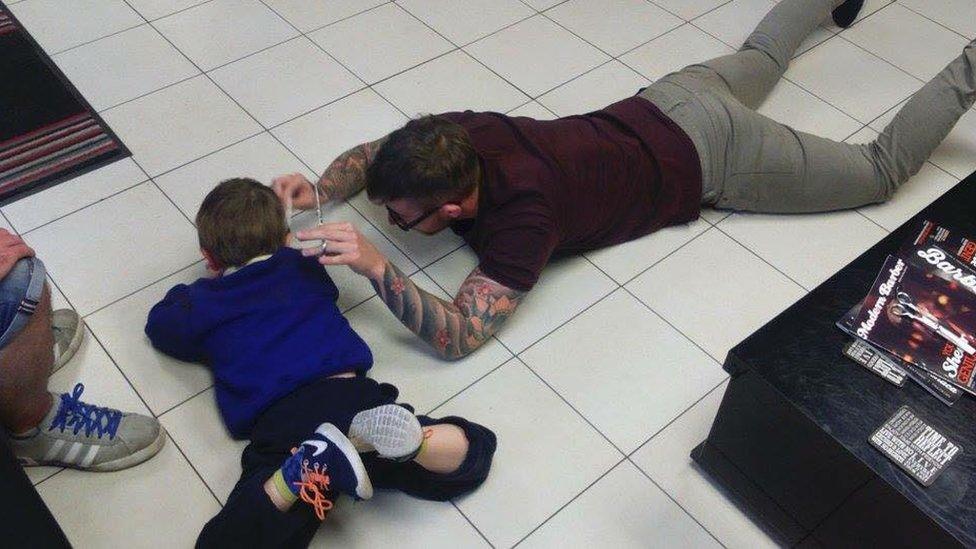Autism at Christmas: 'My son likes to lock himself in his room'
- Published
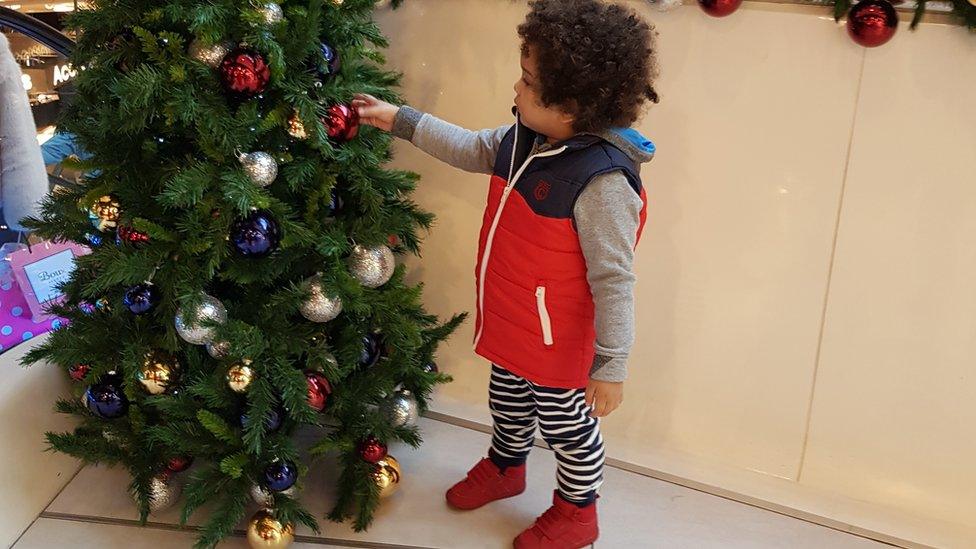
Christmas can be confusing and overwhelming for autistic children
For many children Christmas is the most exciting time of the year, but for those with autism - and for the families who look after them - it can be an extraordinarily challenging period.
Some of the simplest joys associated with Christmas, such as opening presents or eating turkey, can become potential flashpoints as children who place huge importance on their routines find it hard to handle the change to their environment.
So how do families with autistic children make it through the festive season with happiness and harmony?
For Kevin Harrison, it is a time of year to be handled cautiously as his 11-year-old son Daniel struggles with the challenges of Christmas.
"People start visiting, there's advertising everywhere and he can't really understand or make a lot of sense of it," Mr Harrison says.
"The living room looks different, the kitchen looks different, there are cards everywhere, and he definitely starts to act differently character-wise. He likes to lock himself in his room and he does that more at Christmas. His room is his sanctuary."
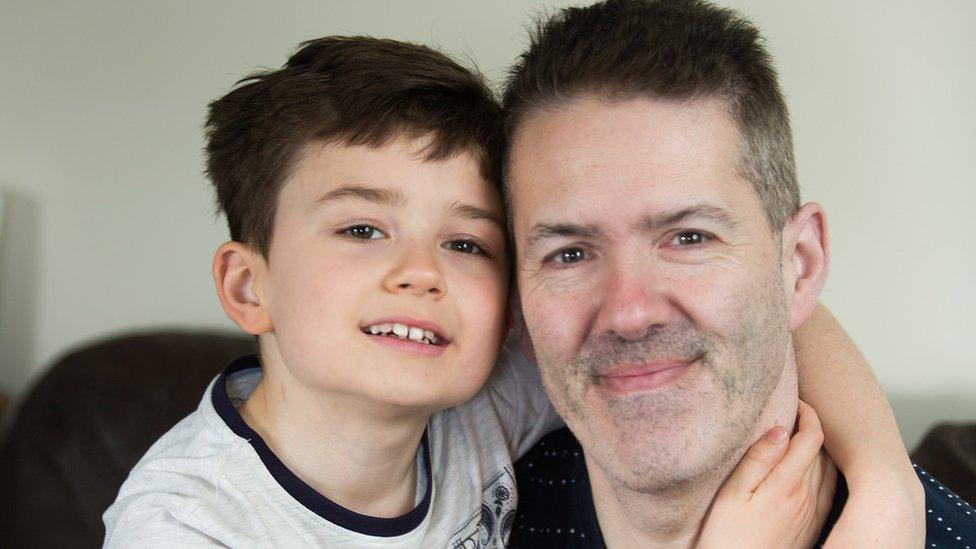
Daniel was really upset one Christmas Day when he was faced with all of his gifts at once
The father of two, from Arnold in Nottinghamshire, said he learned pretty quickly to not overwhelm Daniel with presents on Christmas Day.
"As his parents we want to give him a lot of presents, plus lots of people give him presents as they've followed his story.
"We've tried it on Christmas Day - we tried to get him to sit down and open everything and he had a meltdown. He was really upset. It can take a week to open all of his presents."
Mr Harrison, who says Daniel finds Santa Claus frightening, isn't sure if his son comprehends the meaning of Christmas.
"He goes to Catholic school, where they teach [about Christmas], but we've got no idea if he understands the idea of Jesus... all we know is Dan thinks it's [about] presents."
You might also find interesting:
He says it is also difficult for his son to explain what he wants for Christmas, which makes them feel guilty as parents because Daniel's teenage sister Hannah gets what she asks for.
Christmas Dinner is a challenge for Daniel too. He has a fear of consuming food after suffering acid reflux as a baby and has never eaten a Christmas meal.
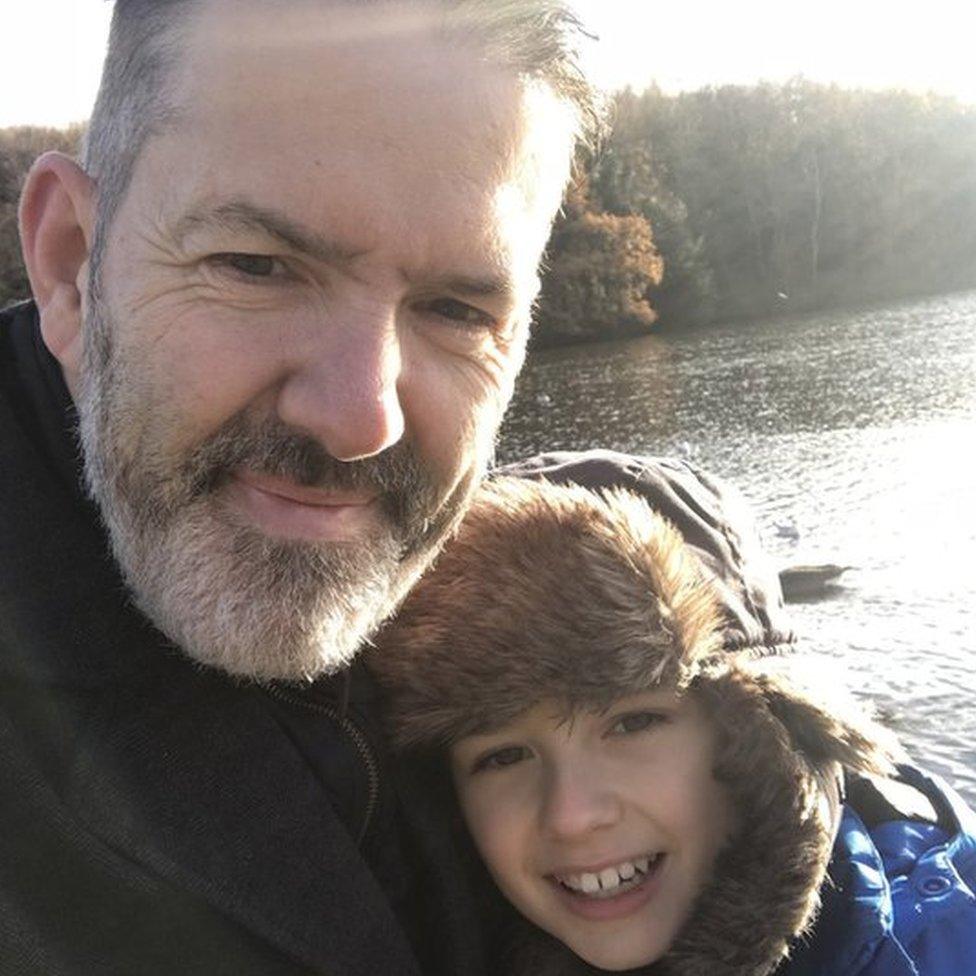
Daniel doesn't join the family for Christmas dinner
"This year he might be able to have something pureed down or chopped down very fine... he's never eaten anything at the Christmas table," Mr Harrison says.
"For years he wouldn't even sit near food. So that feels terrible. We're sat around the table and our son is upstairs.
"We've kind of come to terms with that now, but hopefully this year something might change a little bit and he can have a piece of turkey. But it takes him a long time to eat and he has to be supervised or he could choke.
"He's only been invited to three parties - can you imagine how that feels to us? I don't think Daniel's bothered, but for us it's quite difficult. But the kids [in his class] do love him, they look after him."
For Simona Zetu, a Romanian interpreter from Great Barr in Birmingham, the challenge is twofold as both her four-year-old son and 15-year-old daughter have autism.
She says the most challenging thing for her son Patrick is food. He stopped eating four months ago and will now only have milk.
He will not be sitting with the family to eat Christmas dinner and will be playing in another room.
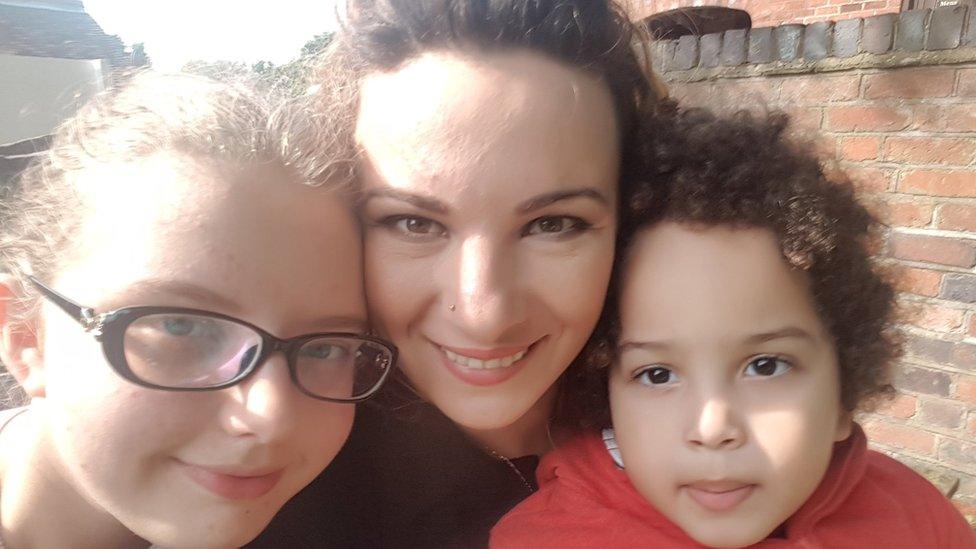
Simona Zetu moved to the UK from Romania with her family three years ago
"We can't force him to eat because he gags," Ms Zetu says. "It is about the texture and colour of the food."
Her daughter Crina used to have a similar problem. For four years she would only eat chips and tomato sauce and would not sit with the family at mealtimes until she was about 10.
Now she is older she is interested in food - Japanese cuisine is her favourite at the moment - and will sit with the rest of the family on Christmas Day.
"They both ate normally until they were 18 months old. Then they stopped - it happened in one day," Ms Zetu says.
"It feels like I am bringing up the same child again."
She says that although Patrick is happy to open gifts on 25 December, he does not understand Christmas.
"He doesn't seem to know what is going on," she says.
Ms Zetu, who moved to the UK from Romania with her family three years ago, says Crina was the same.
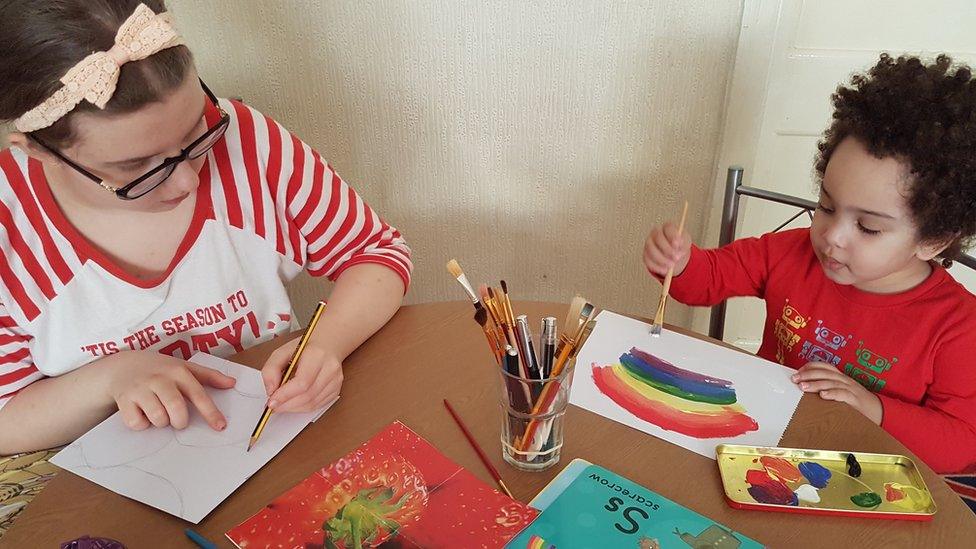
Ms Zetu says her children are very loving
"She did not seem to be aware that Santa was coming. She was in her own world. After the age of six she started to be more present and started to acknowledge the meaning of things and would get overexcited."
Ms Zetu adds that Christmas shopping, with all the lights and noise, can also be difficult.
"With Patrick it is challenging. After about half an hour he sits down and we won't be able to move him. I have to pick him up and leave."
He does not shout or scream, just sits.
"With my daughter, it is just grabbing everything you need in one or two hours. She likes to spend most of her time in a bookshop."
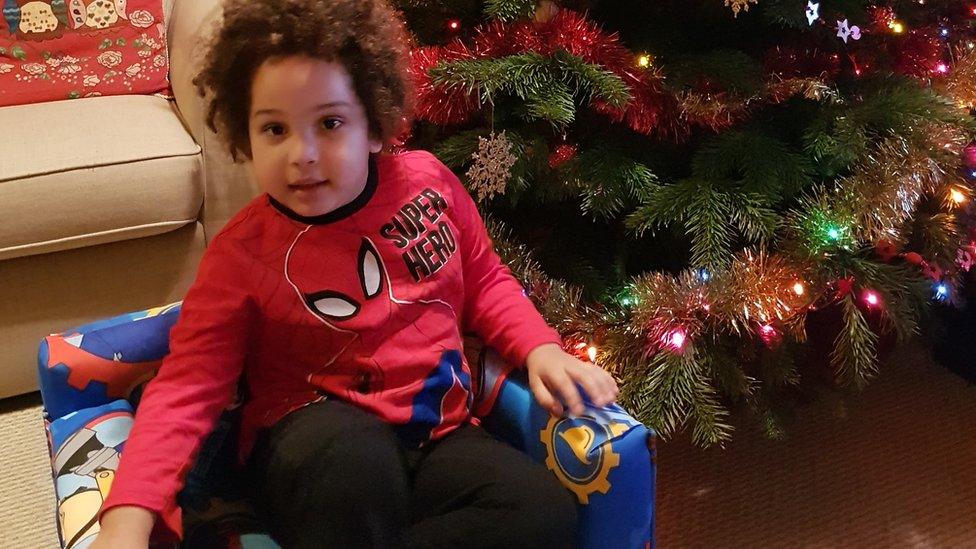
Patrick and Crina do not enjoy visiting others or having guests over
Visiting people and having them over at Christmas time is something Ms Zetu avoids where possible.
"If I have guests, I always make sure they [the children] have their room ready. After 15 minutes, Crina would want to leave."
Crina does not enjoy casual conversation as, for her, it does not have a purpose. She prefers to go to her room to draw, paint or read.
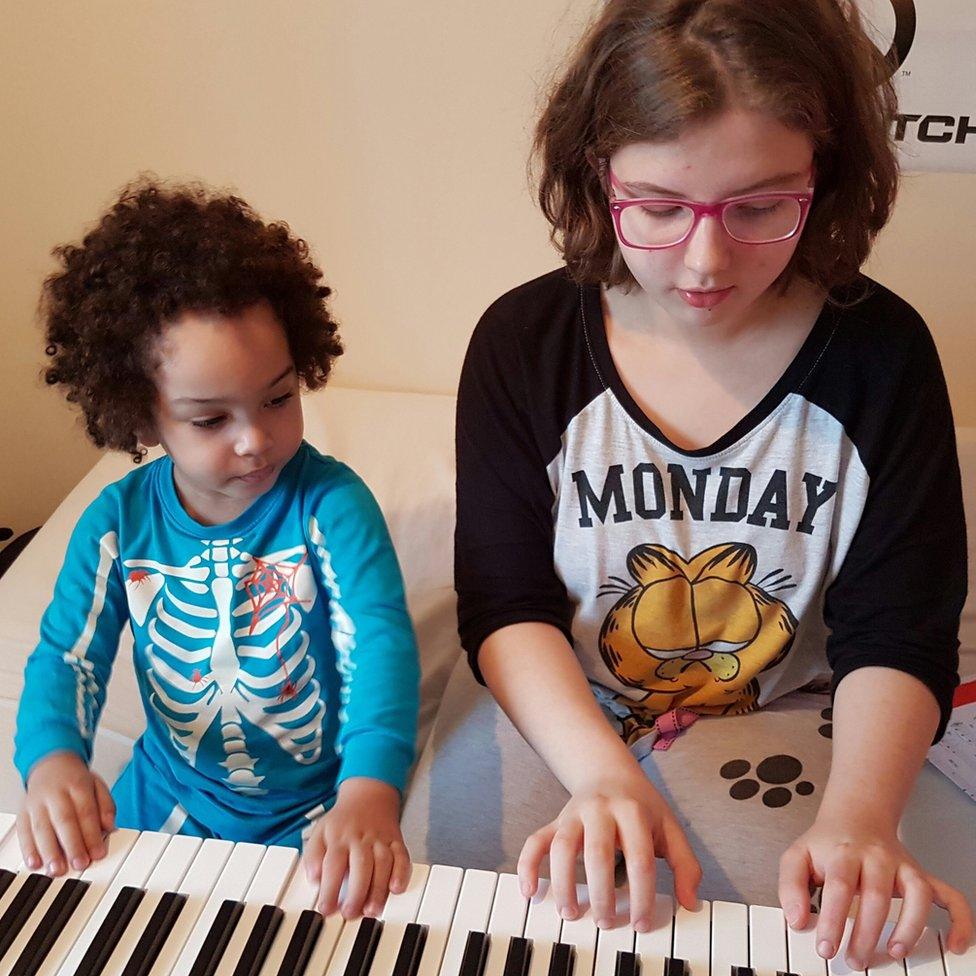
Simona says she wouldn't change her children for the world
"I would not change them for the world," Ms Zetu says. "I am lucky to have such lovely children. They are very loving. They love hugs and kisses. They are amazing.
"It is heartbreaking for me when I say my children are autistic and people say 'I'm sorry'. Don't be sorry - they just think differently. They have a happy life."
"When you see things about autism, you usually see the ugly part. Overall, we have a nice family life. Autism is not about having tantrums."
- Published4 October 2017
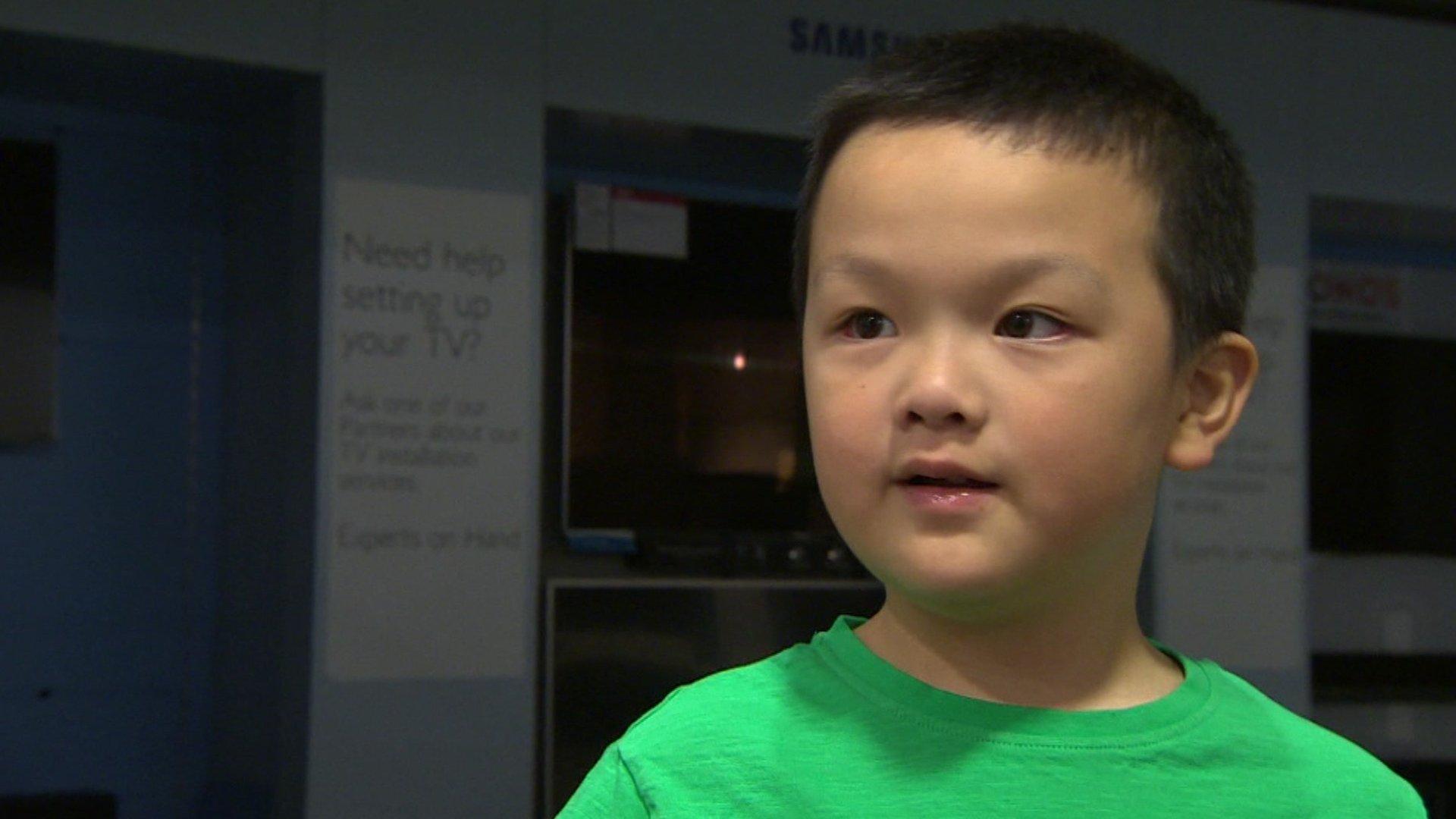
- Published8 April 2017
